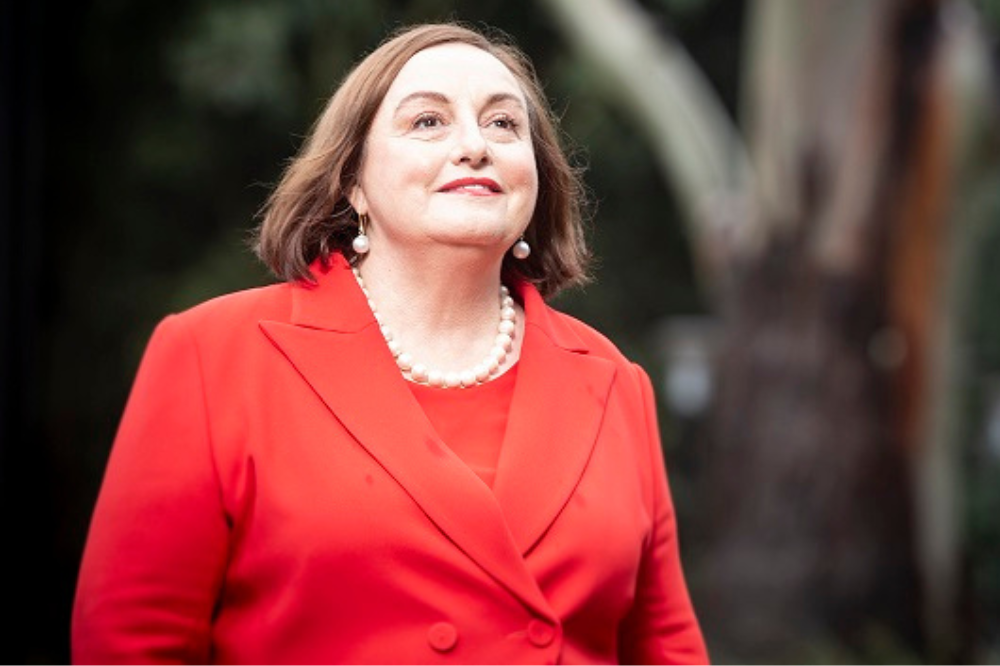
Whether it’s a chat with a colleague, a parent-teacher meeting or a one-on-one talk with a student, listening to understand rather than simply waiting for one’s turn to speak should be the guiding principle of every conversation we have.
Indeed, in the relationship-focused job of school leadership, putting a strong emphasis on active listening is critical for any principal who cares about valuing the diverse voices within their school’s community.
Across Australia, principals are striving for a balance between listening and decisive action, navigating through complex perspectives to foster a positive educational environment.
This shift towards valuing every voice not only enhances decision-making but also promotes a more inclusive and progressive school culture, marking a significant trend in empathetic and effective school management.
In 2021, Professor Patricia M. Davidson, University of Wollongong (UOW) as its Vice-Chancellor and President, was named one of the Outstanding Women Listeners in the World by the Global Listening Centre, next to former Prime Minister of New Zealand Jacinda Ardern.
As someone who has transitioned from a problem-solving role to a leadership position, Professor Davidson knows how to balance the need for active listening with the necessity of making timely decisions – an important part of any principal’s job.
“Leadership roles often demand a conscious effort to balance active listening with timely decision-making,” Professor Davidson told The Educator. “Understanding a range of perspectives is critical in making good decisions.”
Professor Davidson’s advice to principals is “to recognise the importance of appreciating diverse perspectives and always consider the unintended consequences.”
“As an intensive care nurse, my instinct was to provide solutions swiftly, but in a leadership role, it’s crucial to slow down, listen actively and appreciate diverse perspectives,” she said.
“Embracing the discomfort of uncertainty, encouraging open dialogue and ensuring that decisions, though timely, are well-informed by the input of the entire school community all make for a more cohesive and effective organisation.”
When it comes to principals using active listening to navigate complex and ambiguous situations – especially when dealing with diverse perspectives within the school community – Professor Davidson said one becomes a better leader when they become a better listener.
“However, the role of school and school system leaders is challenging, particularly in an increasingly diverse and pluralistic society,” she said.
“My view is that to be a responsive, empathetic leader, we need to continuously challenge our own beliefs, biases and assumptions.”
Professor Davidson said this habit helps principals cultivate humility, which promotes a culture of inclusivity and respect.
“I also strongly believe in data-driven decision-making – as leaders, we have access to tools and information allowing people to provide feedback safely, anonymously and efficiently,” she said.
“Such insights allow for informed decision-making that considers the nuances of diverse perspectives, fostering inclusivity and collaboration within the school community.”
Professor Davidson advocates the idea of a ‘listening award’ for leaders, noting that it’s often the subtle, small changes that influence the overall environment of an organisation.
“A ‘listening award’ could be an informal initiative that inspires leaders to offer appreciation to people who are great at asking questions, demonstrating the value placed on every team member’s input,” she said.
“One good way of fostering more active listening is to encourage frequent and smaller meetings to facilitate open communication and make active listening an integral part of the school’s values.”
Professor Davidson said it’s also important that leaders develop agendas with adequate time for discussion and reflection.
“Recognising and appreciating contributions through awards or acknowledgments will not only boost morale but also create a positive and collaborative school environment where everyone feels heard and appreciated.”


